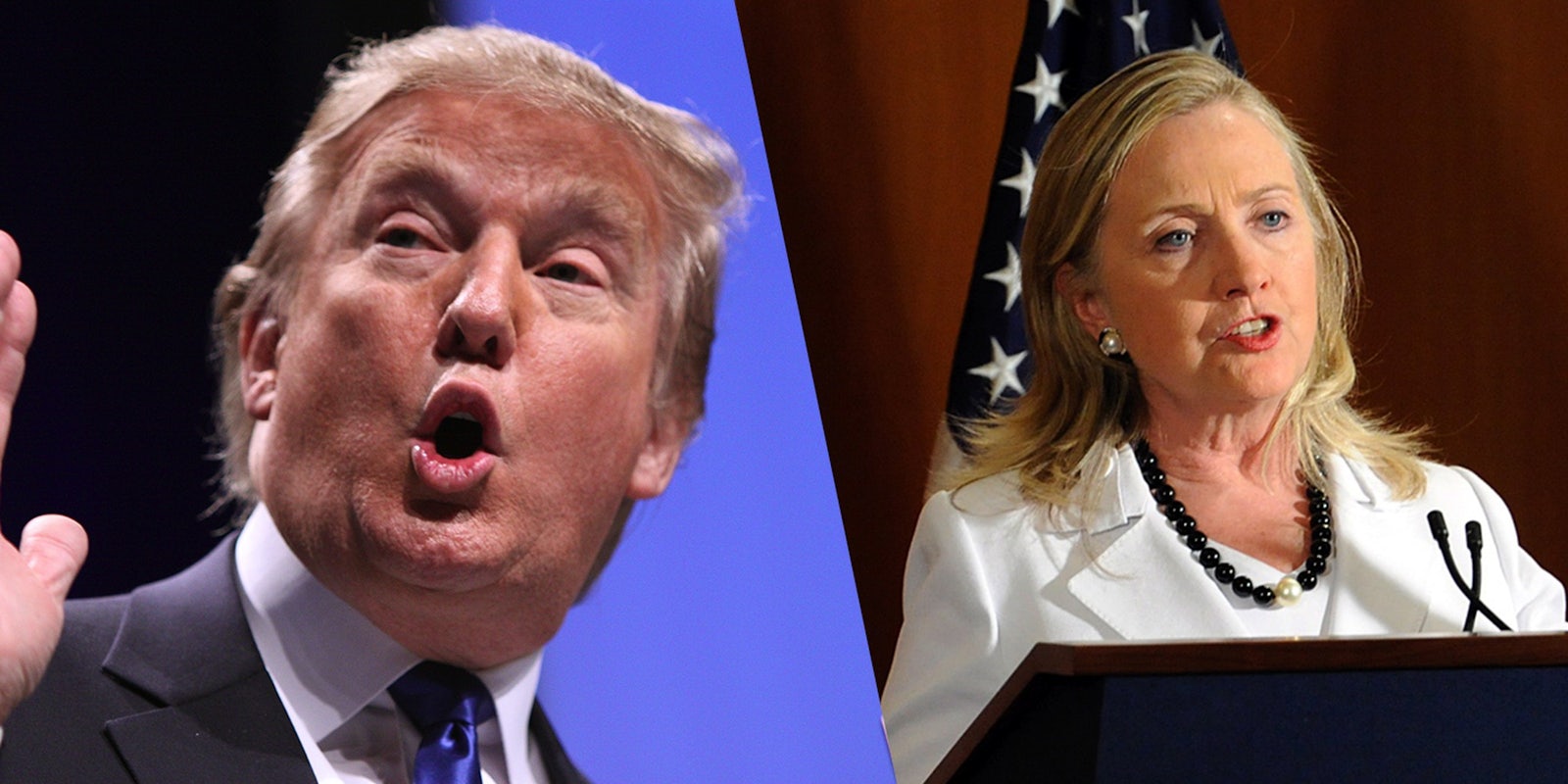Not too long ago, video games sat in the center of America’s political crosshairs. History, of course, has a habit of repeating itself.
Most of the debate took place in the 1980s and ’90s, when games were rising to the top of the American pop culture food chain. The central question was highly charged: Do video games cause players to be violent or otherwise engage in criminal behavior?
Today, with an impending 2016 presidential election between likely Democratic nominee Hillary Clinton and Republican presumptive nominee Donald Trump, the issue of video games is back on the table.
As each candidate maneuvers to win over voters, many younger citizens will look to Clinton and Trump’s positions on their favorite artistic medium. Where do the candidates stand—and does the science back up what they say?
Let’s see how Trump and Clinton stack up on video games.
Hillary Clinton
In 2005, as a U.S. Senator from New York, Clinton made a lot of noise about “video games with pornographic and violent content being peddled toward our children.”
She warned parents against games with “deeply disturbing” content like gun fights, hit-and-runs, fighting cops, attacking women, and engaging in cannibalism. Clinton was especially worried because players engaged in all this bad behavior with “top-of-the-line graphics in stunningly realistic detail.”
Top of the line 2005 graphics? The PlayStation 2 was not delivering exactly lifelike experiences, but we’ll let the then-senator explain what she meant.
As you may have noticed, Clinton pointed to “40 years of research telling us that violent media is bad for children.”
Is that true? The scientific studies have mixed results.
The American Psychological Association concluded in 2015 that violent games increase aggression but lacked evidence to say it extended to criminality or delinquency. Other recent research found no such link, and many sharply questioned the popular narratives that compare to other “moral panics” over television and movies.
“Violent video games increase aggressive behavior as much as lead exposure decreases children’s IQ scores,” Clinton said. “We need to treat violent video games the way we treat alcohol, tobacco, and pornography.”
Donald Trump
Surprising though it may be, Trump said almost the exact same thing about video games as Clinton—only he did it nearly a decade later.
Video game violence & glorification must be stopped—it is creating monsters!
— Donald J. Trump (@realDonaldTrump) December 17, 2012
Trump, who has been an actor in violent dramas like wrestling, didn’t expand further on his views. After all, Twitter limits users to 140 characters, and concise bursts are Trump’s signature style.
Still, Trump’s message mirrors Clinton’s and is on equally unsure footing scientifically. In 2013, Psychological Bulletin called the link between video games and violence “much ado about nothing.”
As the candidates and their allies battle over younger voters who love video games, it’s important to remember one fact in this fight: Both Clinton and Trump can be dead wrong on the same issues at the same time.
